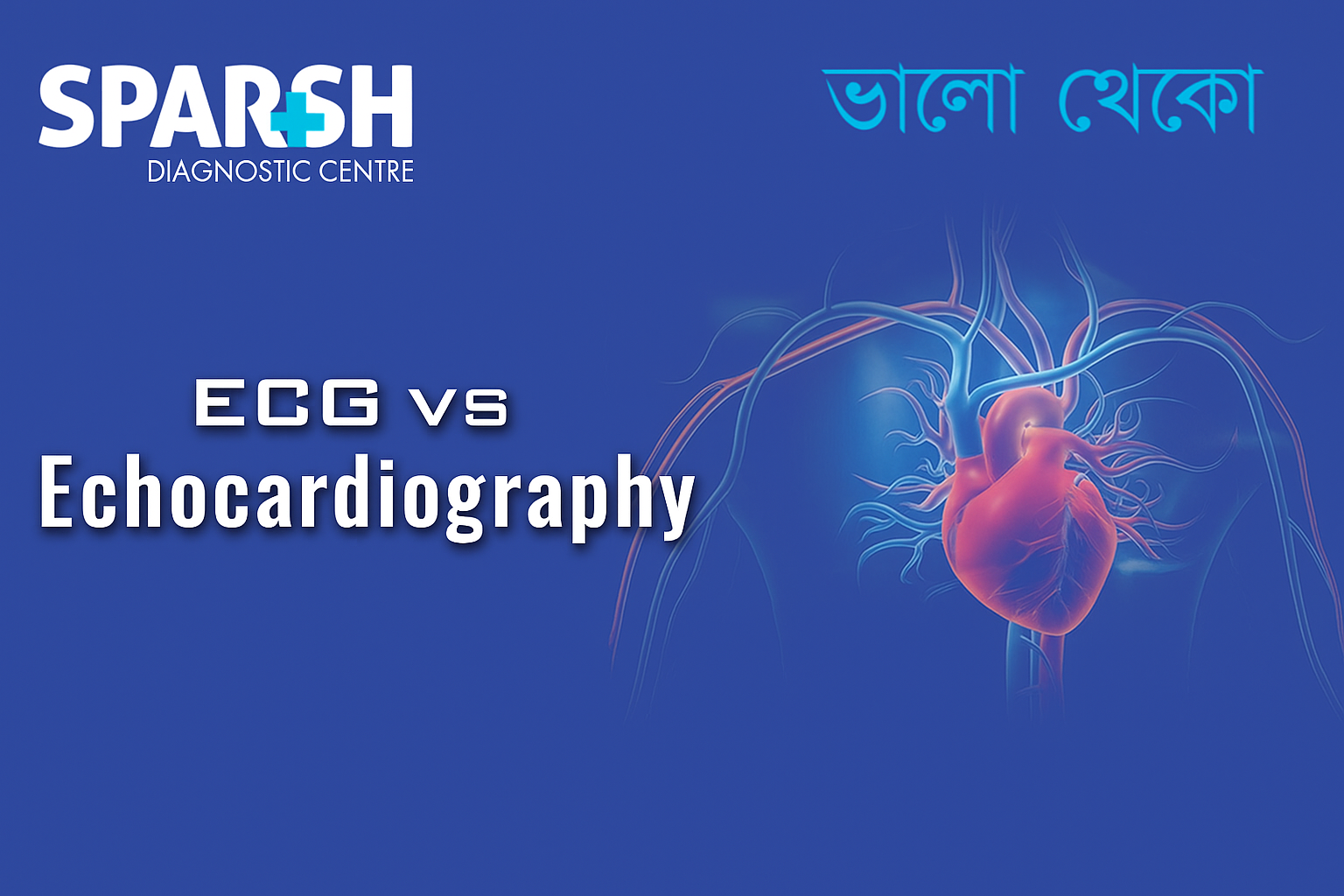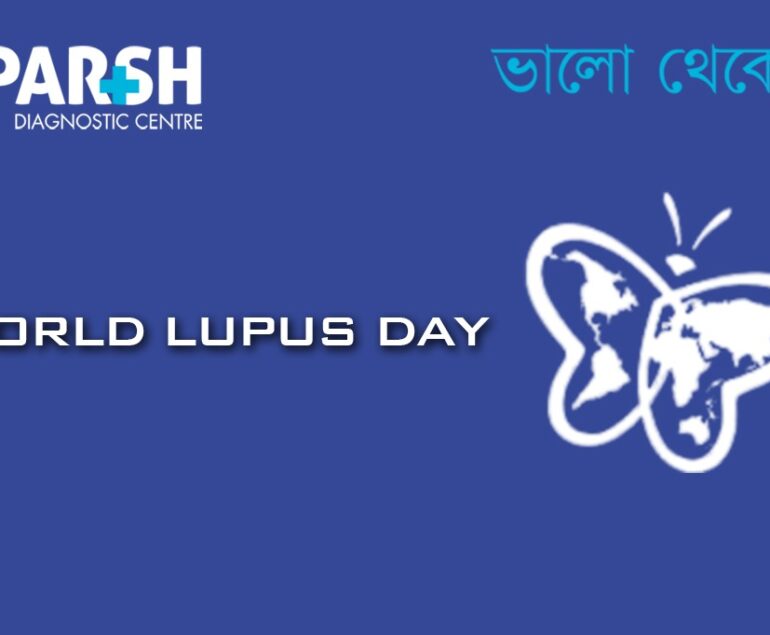Heart diseases are among the leading causes of death worldwide. Early diagnosis and timely medical intervention are critical in preventing complications. Two of the most commonly prescribed diagnostic tests for heart health are the Electrocardiogram (ECG or EKG) and Echocardiography (Echo). While both tests provide valuable insights into the functioning of the heart, they differ significantly in their purpose, method, and the type of information they provide.
If your doctor has recommended one of these tests, you might be wondering: Which is better? What exactly do they detect? Do I need both? This blog will break down everything you need to know about ECG vs Echocardiography to help you understand how these tests work and when each one is recommended.
What is an ECG?
An Electrocardiogram (ECG or EKG) is a non-invasive test that records the electrical activity of the heart over a short period of time.
How it Works
Electrodes are placed on the chest, arms, and legs.
These electrodes detect the electrical signals generated by the heart as it contracts and relaxes.
The results are displayed as wave patterns on graph paper or a monitor.
What ECG Detects
Poor blood supply to the heart (ischemia)
Enlargement of the heart chambers
Electrolyte imbalances affecting heart function
Advantages of ECG
Quick and painless (takes only a few minutes)
Low cost and widely available
No radiation exposure
Useful for emergency diagnosis
Limitations of ECG
Provides only a snapshot of heart activity at a specific moment
Cannot show detailed images of heart structure
May miss intermittent or hidden heart problems
What is Echocardiography?
Echocardiography (Echo) is a non-invasive imaging test that uses ultrasound waves to create detailed images of the heart.
How it Works
A transducer (probe) is placed on the chest.
Ultrasound waves bounce off the heart structures and create moving images.
The test can show the size, shape, and motion of the heart.
Types of Echocardiography
Transthoracic Echocardiography (TTE): Standard echo performed on the chest wall.
Transesophageal Echocardiography (TEE): Probe inserted through the esophagus for clearer images.
Stress Echocardiography: Echo combined with exercise or medication-induced stress.
Doppler Echocardiography: Measures blood flow through the heart and vessels.
What Echocardiography Detects
Structural abnormalities of the heart (valve diseases, congenital defects)
Function of heart chambers and pumping capacity (ejection fraction)
Blood clots or tumors inside the heart
Advantages of Echocardiography
Provides real-time moving images of the heart
Detects structural and functional heart diseases
Non-invasive and safe (no radiation)
Helps evaluate the severity of heart conditions
Limitations of Echocardiography
More expensive and time-consuming than ECG
Image quality may be limited in obese patients or those with lung disease
Requires trained specialists to interpret results
ECG vs Echocardiography: Key Differences
| Feature | ECG | Echocardiography |
|---|---|---|
| Type of Test | Electrical activity test | Imaging (ultrasound) test |
| Purpose | Detects heart rhythm and electrical issues | Evaluates structure and pumping function |
| Time Taken | 5–10 minutes | 20–40 minutes |
| Cost | Low | Higher |
| Risk | None | None |
| Best for | Detecting arrhythmias, heart attack | Detecting structural defects, valve problems, heart failure |
When Do Doctors Recommend ECG?
Doctors usually prescribe an ECG when they suspect problems related to:
Irregular heartbeat (palpitations, dizziness, fainting)
Chest pain or suspected heart attack
Monitoring heart condition in patients with pacemakers
Routine check-ups for high-risk individuals
When Do Doctors Recommend Echocardiography?
An Echo is recommended when a doctor suspects:
Heart valve problems (stenosis, regurgitation)
Fluid build-up around the heart
Blood clots inside the heart
Do You Need Both ECG and Echocardiography?
In many cases, both tests are complementary rather than alternatives.
ECG helps detect rhythm and electrical problems.
Echo helps visualize the structure and pumping ability.
For example:
A patient with chest pain may first undergo an ECG to check for a heart attack.
If structural problems or heart weakness are suspected, an Echo may follow.
ECG vs Echocardiography: Which One is Better?
Neither test is “better” universally—it depends on the clinical question your doctor wants answered.
If your doctor wants to check how your heart beats, an ECG is the first choice.
If they want to see how your heart looks and works, an Echo is more appropriate.
Often, doctors use both tests together for a complete picture of heart health.
Preparing for the Tests
ECG Preparation
No special preparation required
Avoid oily skin creams before the test (for electrode adhesion)
Wear loose clothing for easy electrode placement
Echocardiography Preparation
For standard TTE: No special preparation required
For TEE: Fasting for 6 hours before the test
For Stress Echo: Comfortable clothes and walking shoes recommended
Risks and Safety
Both ECG and Echocardiography are safe and risk-free.
ECG involves only electrode placement with no radiation.
Echocardiography uses harmless ultrasound waves.
TEE may cause mild throat discomfort due to probe insertion.
Summary: ECG vs Echocardiography
ECG = Electrical signals of the heart
Echo = Images of the heart
ECG is quick, inexpensive, and useful for rhythm issues.
Echo is more detailed, helps diagnose structural and pumping problems.
Both tests are often used together for comprehensive heart evaluation.
Frequently Asked Questions (FAQ)
1. Is ECG the same as Echocardiography?
No. ECG records electrical activity, while echocardiography produces ultrasound images of the heart’s structure and function.
2. Which test is more accurate for heart problems?
Accuracy depends on the suspected condition. ECG is best for arrhythmias and heart attacks, while Echo is best for valve issues, pumping function, and structural defects.
3. Can ECG detect heart blockages?
ECG can sometimes suggest reduced blood supply (ischemia) but cannot directly detect blockages. Tests like angiography are required for that.
4. Does an Echocardiogram show heart attacks?
It can show areas of poor pumping (suggesting damage from a heart attack), but ECG and blood tests are primary tools for diagnosis.
5. Is Echocardiography painful?
No, it is painless and non-invasive. Only TEE may cause mild throat discomfort.
6. How long does an ECG take?
Usually 5–10 minutes.
7. How long does an Echocardiogram take?
Around 20–40 minutes, depending on the type.
8. Can I eat before ECG or Echo?
Yes, you can eat normally before ECG and transthoracic echo. For TEE, fasting is required.
9. Which is cheaper—ECG or Echo?
ECG is significantly cheaper compared to Echo.
10. Do I need both ECG and Echocardiography?
Sometimes, yes. Doctors may order both tests to get a complete understanding of your heart’s electrical and structural health.
Both ECG and Echocardiography play vital roles in diagnosing and managing heart conditions. While ECG focuses on electrical activity, Echo provides structural and functional insights. Instead of viewing them as alternatives, think of them as complementary tests. If your doctor recommends either or both, it’s to ensure a precise and complete evaluation of your heart health.
Taking care of your heart starts with timely screening. If you experience symptoms such as chest pain, palpitations, shortness of breath, or unexplained fatigue, consult a cardiologist immediately and get the recommended tests done.
#BhaloTheko
Disclaimer:
No content on this site, regardless of date, should ever be used as a substitute for direct medical advice from your doctor or other qualified clinician.

![]()





